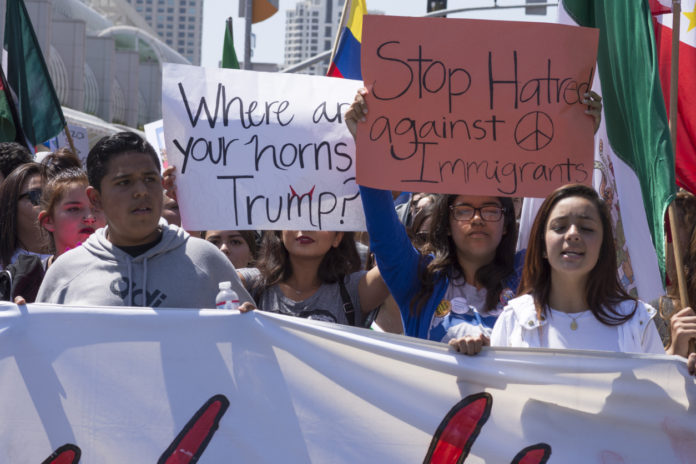Members of Congress who are dismayed by Donald Trump’s invocation of emergency powers to build his border wall are like the dog owner who leaves the gate open and is then surprised to find his labradoodle bounding around the neighborhood. He might have hoped the dog would stay in the yard without external restraint, but that wasn’t a reasonable expectation.
A lawsuit filed by California and 15 other states on Monday argues that there is “no objective basis for President Trump’s Emergency Declaration” and that “by the president’s own admission, an emergency declaration is not necessary.” Even while declaring a border-related national emergency on Friday, the complaint notes, Trump conceded that he “didn’t need to do this,” as “I could do the wall over a longer period of time.” But he added that he’d “rather do it much faster.”
Although an emergency that isn’t urgent may seem like a contradiction in terms, that does not mean it is illegal. Under the National Emergencies Act of 1976, a law that was supposed to constrain the president’s exercise of extraordinary powers, an emergency is whatever the president says it is. It need not be sudden, pressing, harmful or of limited duration.
The fact that the president can create an emergency by the stroke of a pen, without regard to objective circumstances, is rather alarming in light of all the legal provisions that give him or his appointees special powers once he has done that. The Brennan Center for Justice has cataloged 123 of them, including the power to freeze bank accounts, to take control of the internet and to “suspend a law that prohibits the testing of chemical and biological weapons on unwitting human subjects.”
In this case, Trump is relying on Section 2808 of the Title 10 U.S. Code, which authorizes the secretary of defense, in the event of a national emergency “that requires use of the armed forces,” to “undertake military construction projects” that are “not otherwise authorized by law” when they “are necessary to support such use of the armed forces.” While it’s debatable whether Trump’s desire for border wall money that Congress denied him meets those criteria, it is not clear that anyone but the president gets to make that call.
California et al. argue that Trump’s end run around the legislative branch’s exclusive authority to appropriate taxpayers’ money “violates the separation of powers doctrine.” But if so, it’s a violation that Congress itself seems to have authorized.
Can Congress do that? The nondelegation doctrine, a long moribund principle that prohibits one branch of government from passing off its responsibilities to another, suggests Congress cannot.
The Supreme Court has not invalidated an act of Congress as a violation of the nondelegation doctrine since the New Deal. But the justices recently heard a case that invites them to put some teeth into the rule, which historically has been invoked far more often than it has been enforced.
Herman Gundy, who was convicted of sexual assault in 2005, is challenging retroactive application of a federal law that penalizes sex offenders who fail to comply with state registration requirements. He argues that Congress gave the attorney general too much discretion in deciding whether and which sex offenders convicted before the law was passed are covered by it.
While that dispute may seem far afield from Trump’s money grab, both situations raise the question of how far Congress can go in delegating legislative powers to the executive branch. And as the U.S. Court of Appeals for the 2nd Circuit ruled against Gundy, the fact that the Supreme Court agreed to hear his case suggests that at least four justices are open to reviving the nondelegation doctrine.
Even if that does not happen, Congress can and should prune the president’s overgrown emergency powers and impose meaningful limits on the circumstances in which they can be exercised. Good fences do no harm to good dogs, and they are especially important for wild ones.






























